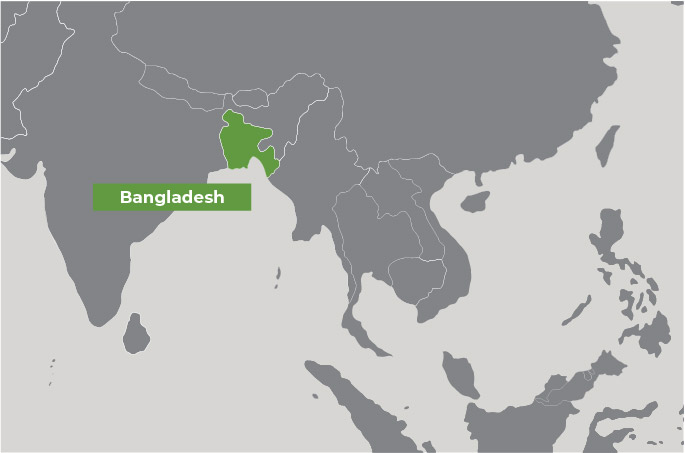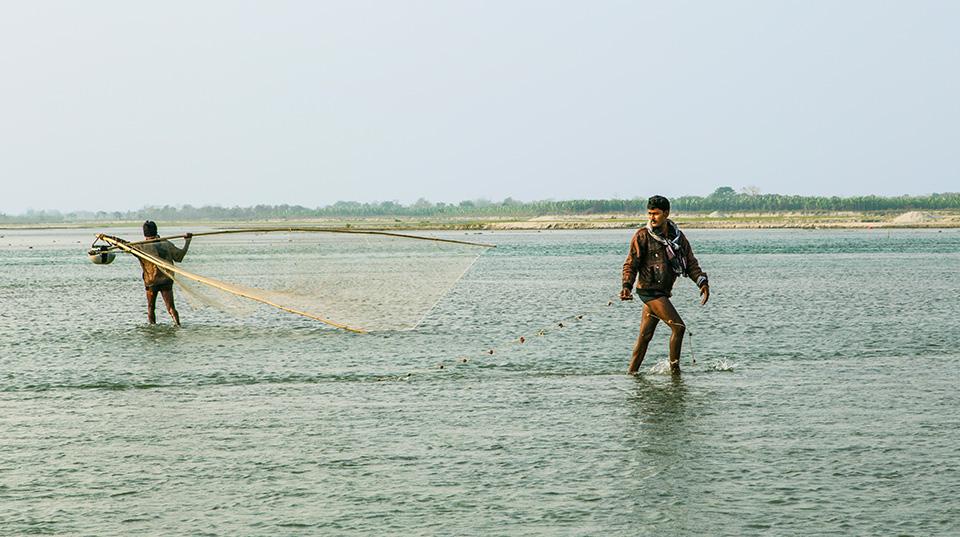Overview
'Paribartan' will develop, trial and evaluate Locally-Led Adaptation (LLA) processes in the polder communities of coastal Bangladesh, building self-sustaining learning systems that will allow farming communities to respond adaptively to rapidly changing conditions.
Polders are land areas that are surrounded by embankments intended to protect the land from oceanic water intrusion, with drainage channels controlled by sluice gates regulating the surface water flow in and out of a polder. Climate change is increasing salinity intrusion into polders as well as breaches in embankments, both of which interact with siltation of water channels, land subsidence, and conflict over resources, which are all layered on top of a naturally dynamic river delta landscape, creating challenging conditions for farmers. Excellent research has been conducted on technical agricultural options. However, local situations are very different from one place to the next and change rapidly as climate change progresses.
This means that adaptation options need to be tailored to local conditions and will need to keep changing as conditions keep changing. In such a situation where decisions need to be quick and responsive to local conditions, adaptation needs to be led by local people, who then need the capacity to make informed choices over and over again.
This project aims to learn how to build this self-sustaining capacity by using participatory action and bottom-up research processes to design, demonstrate, test, and refine a range of locally-led learning and decision-making approaches that allow local community groups and their members to continually adjust their agricultural adaptation choices to respond to the dynamic social-ecological landscape encountered within polders.
Expected project outcomes
- Community groups (water management groups, women's groups, etc.) and their constituent farmers will better understand changing stressors and be able to critically evaluate their changing options to make agricultural adaptation choices - including trialling technical options, connecting with appropriate markets and sources of government and donor support, and managing social and power dynamics of collective action and change.
- Community groups will develop new social enterprise business models, generating their own financial resources to self-sustain ongoing learning and adaptation decision-making functions - evolving into 'boundary organisations'
- Emergent local champions will have the skills and capacity to promote LLA and support additional community groups in adopting it
- Government, researchers and development partners will better understand changing stressors, the need for LLA as a result, and how they can best support community groups to lead adaptation processes and decisions
- As an initial result of the above, locally-adaptive agricultural changes will have begun, with tangible benefits at least in terms of avoided loss of income and food security, and potentially early improvement of income, food security and well-being relative to current conditions.




